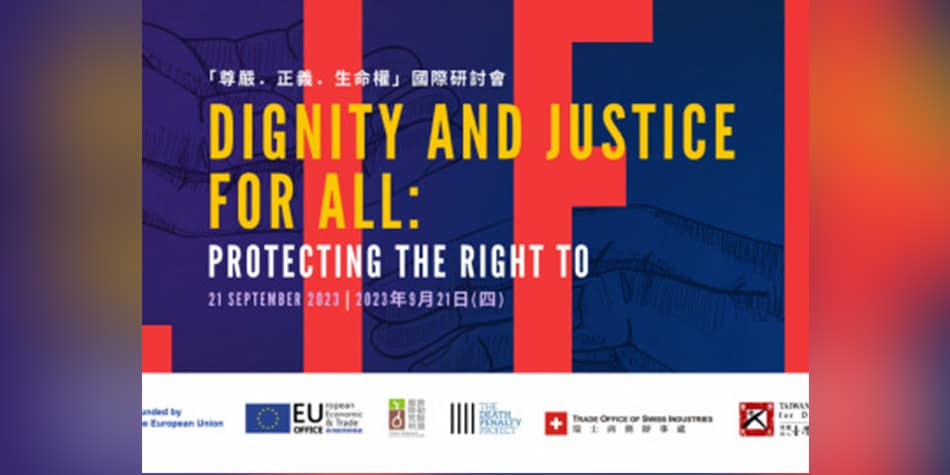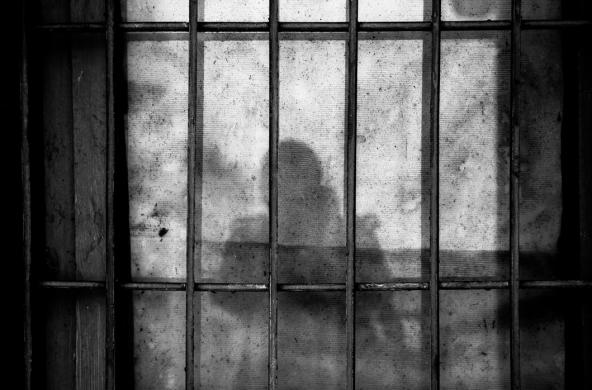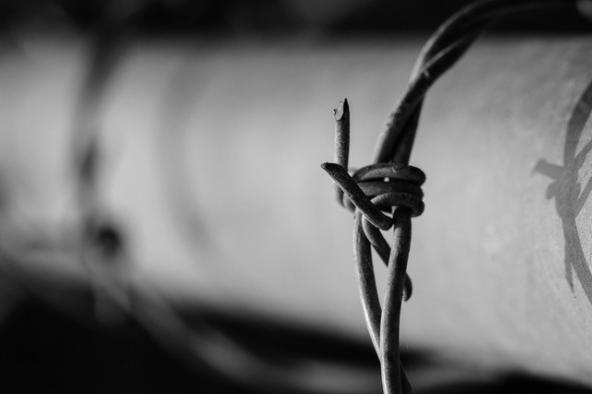From death row to elusive freedom
Abolition
“Hey Mom, pass the turkey, please.”
I silently watch as the wave of many pairs of hands pass the heaving platter to my end of the table. Just as I am forking slices of dark meat onto my plate, I hear the loud slam of a metal door, the clanging of steel bars jarring me awake. I am back on death row again. I shoot a look at the calendar. Good. I still have a few weeks to live. I renew my pledge not to make it easy for them. I have been practicing holding my breath for the last year and a half.
The other day, the assistant warden asked me if I had a special request for the moment when the pellets fall in the gas chamber. I said, “Yes, will you hold my hand?”
I hold my shaving mirror outside of the bars at a 45-degree angle. I can see the trustee pushing the food cart, sliding a tray into each cell as he makes his way down the row. I don’t have to wonder what’s for breakfast. It’s the same thing every day. Cold chopped potatoes with chili sauce splattered on it. It looks like someone already tried to eat it.
We used to get a hard-boiled egg on Sundays, but that ended when the assistant warden caught one in the back of the head. Nice hit. It was almost worth the prisoners’ excitement over the next two days. In our mundane routine of life on death row, the slightest deviation was eventful.
But that was eight months ago. I miss that stupid egg on Sundays. It may not seem like a big deal to most people, but when you live in a 6-by-9-foot cell, an egg is something you look forward to all week.
These were my musings 35 years ago, back when I sat on death row for a crime I did not commit.
Now I can eat eggs every morning. But every night I relive my death row experiences. Every day, I still struggle to contain the anger rising inside of me.
Frankly, every time I awaken from this nightmare of finding myself back on death row, I’m embarrassed. I have been out for a long time. I should be over it by now. But every time I get lost in a book or daydream, when I wake up in the morning, or look up from a crossword puzzle or read a newspaper, the feeling creeps up on me. I’m back on death row. And I am not alone.
With the other exonerated death-row survivors I work with, we often talk about our mutual feeling of never feeling really free. Death row is a special hell for innocent people. We were going to be murdered as punishment for crimes we did not commit. And we were the lucky ones who were exonerated. Others were executed who were as innocent as we were. Think about that.
So I have the deepest respect and admiration for people like Juan Melendez, Ray Krone, Gary Gauger, Freddie Lee Pitts, and the others who travel around our country speaking about our experiences on death row to anyone who will listen. We are black, brown, and white, conservative and liberal, rural and urban, but we have all dedicated our lives to sharing our stories with our fellow Americans, so that the United States will join the rest of the civilized world in abolishing the death penalty.
But just before a speech or an interview, we gather together. We lend support to each other for the next small step in our journey as death row survivors. We’re vigilant about each other’s psychological state, because we silently know that even though the audience will not see it, every time we talk about our experiences it puts us right back on death row. The cruel and unusual Groundhog Day we relive every time we publicly speak at colleges, churches, and civic organizations won’t end until the death penalty does.







